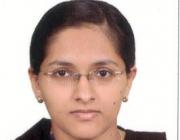Module 1
S I unit of Current, Voltage, Power and Energy, Ohm’s Law – Temperature
Coefficient of Resistance – Kirchhoff’s Laws – Solution of Series-Parallel D.C.
circuits – star Delta Transformation – Magnetic Circuits – Flux-Flux density – m
m f – Magnetising Force – Reluctance –Permeability –Comparison of Electric and
Magnetic Circuits-Force experienced by a current carrying conductor in Magnetic
Field – Electromagnetic Induction – Farady’s Laws – Lenz’s Law – Statically
Induced e m f – dynamically induced e.m.f. – Self and mutual Induction –
Coefficient of coupling.
Module 2
Alternating Quantity – Generation of Sinusoidal Voltage – Frequency – R.M.S.
and Average Value – Form Factor – Peak Factor – Phasor Representation – Phase
and Phase Difference – Solution of Series R L C circuits – Power and p.f. –
Operator ‘j’ – Admittance – solution of series and parallel R L C circuits.
Module 3
Resonance – Series and Parallel – Q factor – Selectivity and Bandwidth – Three
phase system – Representation – Star and Delta Systems – Phase sequence –
Balanced Delta connected System – Balanced Star Connected system – Phasor
representations – Simple Problems.
Module 4
D.C. Machine – Principle of Operations of a D.C. generator – Constructional
Details – e.m.f. equation – Types of Generators.
D.C. Motor – Principle of Operations – Back e.m.f. and its Significance –
Necessity of Starters – Types of motors and Applications.
Transformer – Principle of Operations – e.m.f. equation – Ideal Transformer –
Constructional Details – Losses and Efficiency – Use of Power, Distribution and
Instrument Transformers.
Induction Motor – Principle of Operation of 3 phase Induction Motor – Cage and
Slip ring – Slip – Applications – types of Single Phase Induction Motors –
Applications.
Alternator – Principle of Operations – Types
Module 5
Requirements of Good Lighting System – Working Principle of Incandescent –
Fluorescent and Mercury Vapour Lamps – Estimate the quantity of Materials
required and Draw the wiring layout of (a) Residential Building with One or Two
rooms. (b) Workshop with one Induction Motor.
Generation – Types of Generation – Hydroelectric, Thermal, Nuclear and Non
Conventional – Transmission – Need for high Voltage Transmission –
Transmission Voltages in Kerala – Distribution – Underground Versus Overhead
– Feeder – Distributor – Service Mains – Conductor materials – One line Diagram
of a typical Power System.
